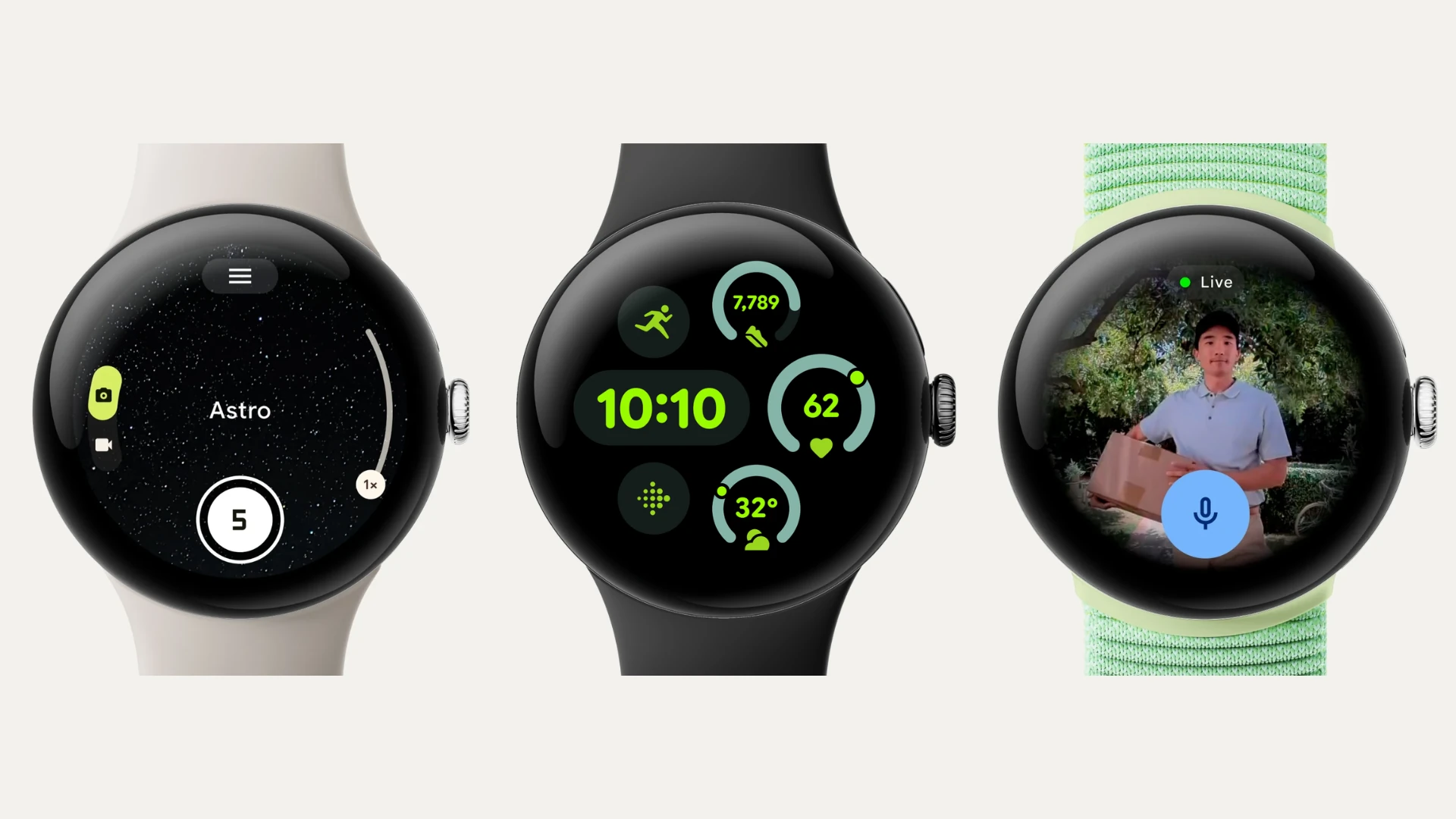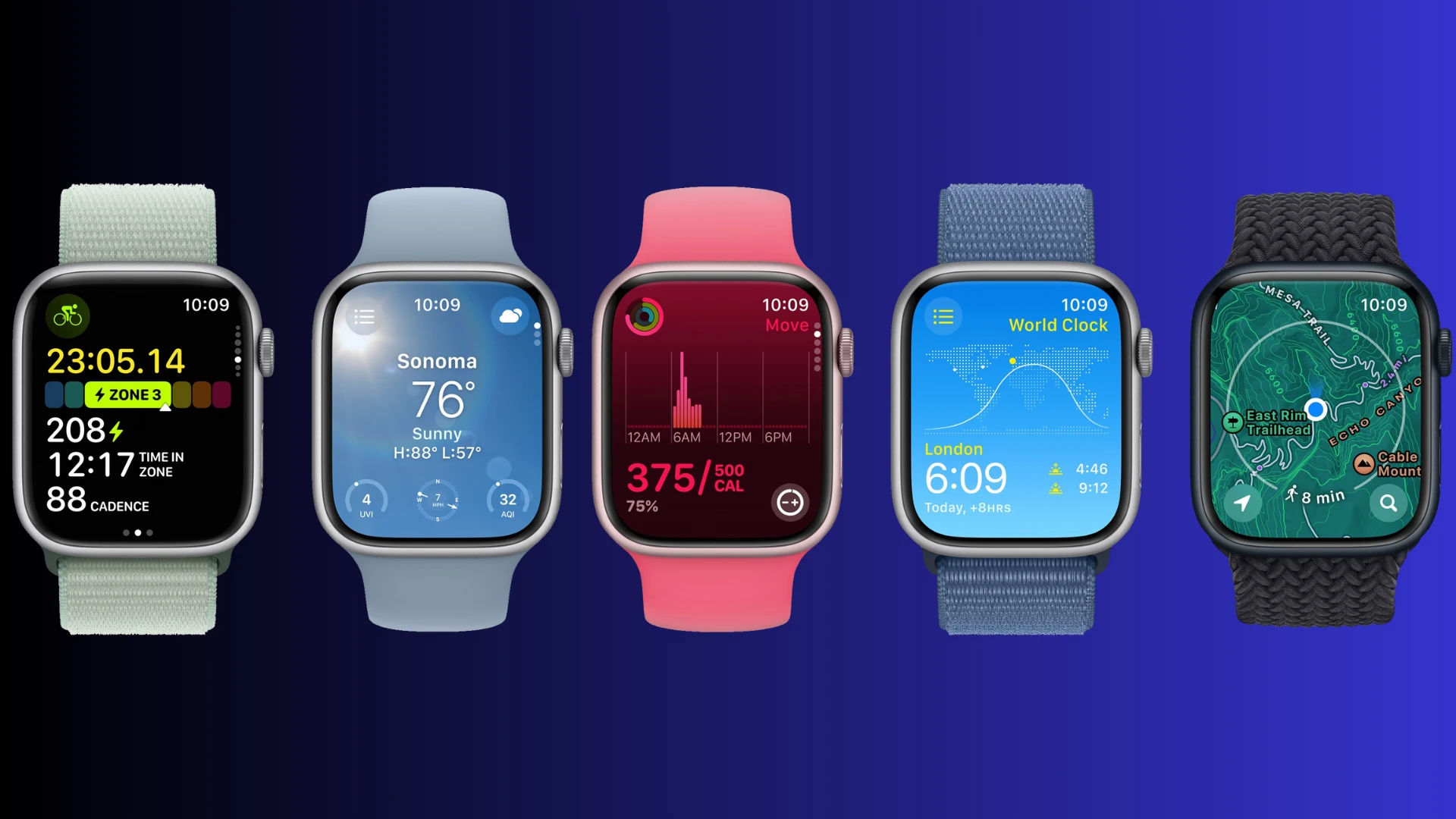Image by rawpixel.com on Freepik
Alright, let’s face it. Learning a new language can feel like climbing Mount Everest in flip-flops. But hey, thanks to technology, we’ve got these handy language learning apps that can make the journey a bit less intimidating, even enjoyable. They can turn your daily commute into a Spanish lesson and those daunting grammar rules into bite-sized lessons. They also help you practice your pronunciation without the fear of judgment (unless your cat starts giving you weird looks).
In this article, we’ll cut through the noise and review some of the best language learning apps out there. We’ll weigh their pros and cons, share tips to keep you motivated and help you get the most out of your learning experience.
Duolingo: The Gamified Language Learning App
Let’s kick things off with Duolingo, probably the most recognizable name in the language learning app world. It’s like the friendly mascot of language learning, with its cute owl logo and gamified approach.
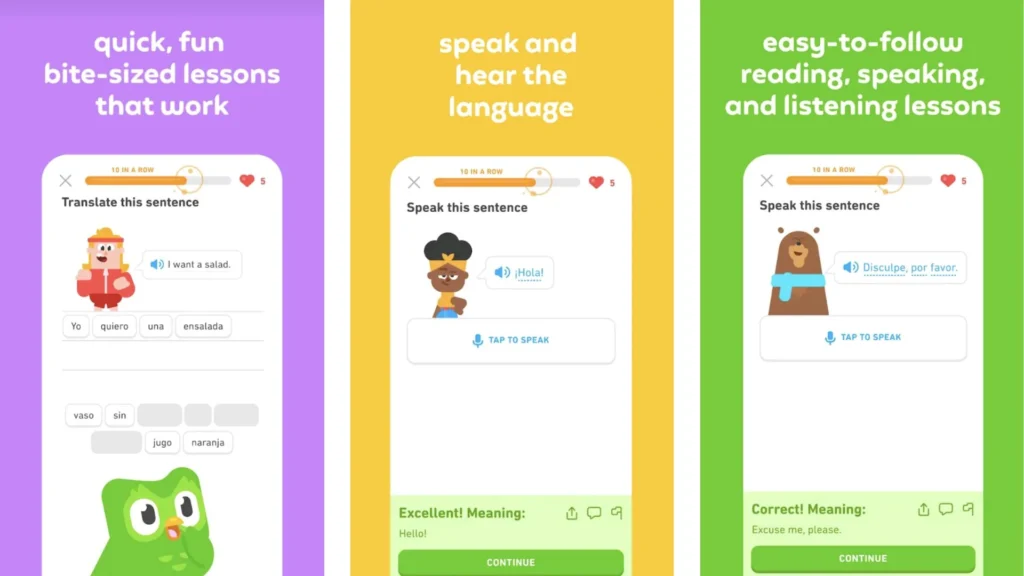
Key Features
- Free Version: Duolingo offers a well-rounded free version, making it accessible to everyone.
- Gamification: It turns language learning into a game with points, levels, and streaks, keeping you engaged and motivated.
- Bite-sized Lessons: Lessons are short and sweet (designed to be completed in about 5-10 minutes)
- Variety of Languages: Duolingo offers an impressive range of languages, from the common Spanish and French to the less common, like Irish, Ukrainian, and, let’s not forget, Klingon (yes, really!).
- Immediate Feedback: You get immediate feedback on your answers, which helps you avoid repeating mistakes and learn faster.
- Progress Tracking: Duolingo provides clear progress tracking, so you can see how far you’ve come and stay motivated.
Cons
- Limited Depth: While great for beginners, Duolingo might not be enough to reach fluency.
- Repetitive Exercises: Some users find the exercises can get a bit repetitive after a while.
- Limited Speaking Practice: The focus is more on reading and writing, with less emphasis on speaking practice.
- Lack of Grammar Explanations: The app could benefit from more in-depth grammar explanations, especially on the mobile app.
- Over-Simplification: Exercises can sometimes oversimplify language learning. They mainly focus on learning words and changing sentences around, but they don’t help you create your own sentences. This can make it harder for you to have deep conversations in a new language. However, this simplification is helpful for beginners but might feel limiting for more advanced learners.
- Ads in the Free Version: The free version does have ads, which can be a bit distracting. However, you can upgrade to the paid version to remove them.
Duolingo is a great starting point. It’s free, accessible, and perfect for building a solid foundation. However, if you’re aiming for fluency, you might need to supplement it with other resources.
Memrise: Where Mnemonics Meet Language Learning
Next up is Memrise, an app that takes a slightly different approach to language learning. It’s all about using mnemonics and clever memory tricks to help you retain new words and phrases. Think of it as a language learning app with a quirky sense of humor.
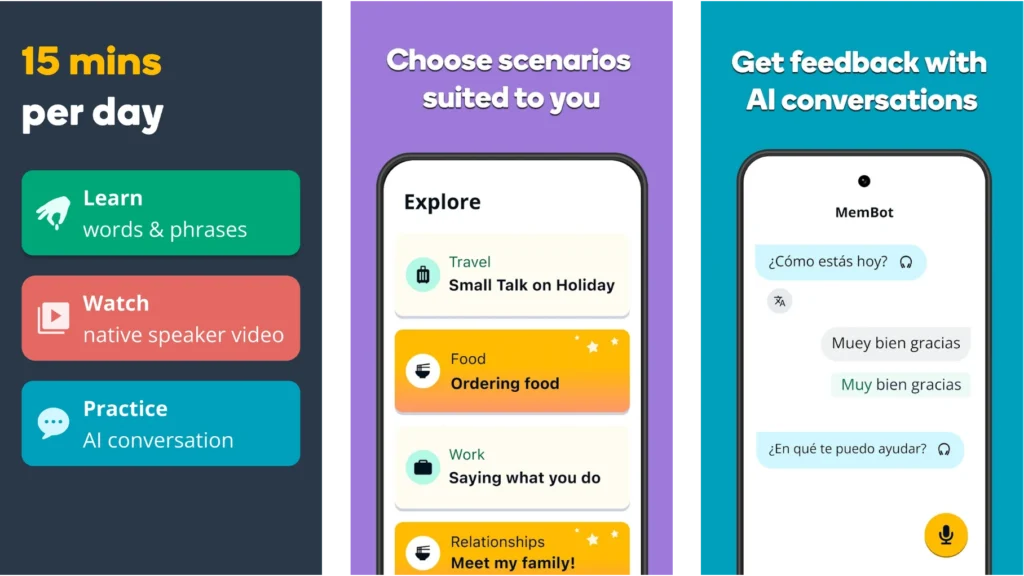
Key Features
- Focus on Vocabulary: Memrise excels at helping you build a strong vocabulary foundation using visual aids, audio clips, and engaging memory techniques.
- User-Generated Content: The app encourages you to create your own mnemonics and share them with the community, fostering a collaborative learning environment.
- Varied Content: Memrise now offers short videos, an AI chatbot for conversation practice, and “Scenarios” to practice real-life language use, in addition to its traditional flashcard-style learning.
- Spaced Repetition System: The app uses a special method to help you remember new words better. It reminds you to review the words at just the right times to help them stick in your memory.
Cons
- Less Structured: Memrise’s approach can feel less structured compared to Duolingo, which might not suit all learning styles.
- Limited Grammar Focus: While vocabulary is king on Memrise, grammar explanations can be less comprehensive.
- Free Version Limitations: The free version offers limited access to courses and features. You’ll need to subscribe to unlock the full potential of the app.
- Requires Internet Connection: The new version of Memrise currently requires an internet connection to use.
Memrise uses mnemonic techniques and content created by other users to help you learn a new language. However, if you prefer a more structured approach with detailed grammar lessons or need to use the app offline, Memrise might not be the best fit for you. You could consider using it together with another app to get the best of both worlds.
Babbel: The Conversationalist’s Choice
If you’re serious about holding real-life conversations in your target language, Babbel might be your new best friend. This app focuses on practical vocabulary and grammar, aiming to get you chatting confidently as quickly as possible.
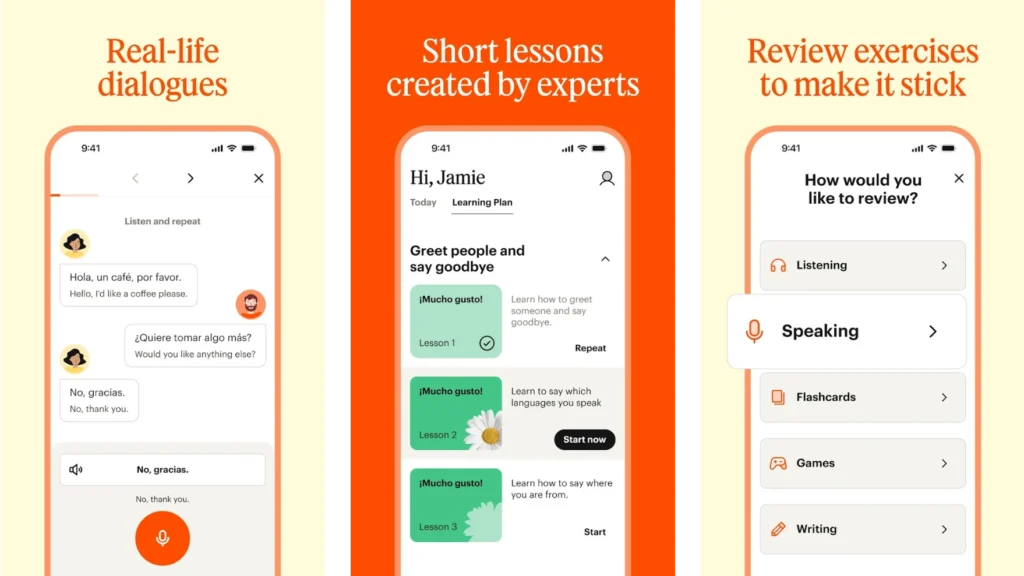
Key Features
- Conversation-Focused: Babbel’s lessons are designed to equip you with the phrases and grammar you need for everyday interactions.
- Real-Life Scenarios: The app offers dialogues and exercises based on common situations, like ordering food, asking for directions, or making small talk.
- Cultural Insights: Babbel sprinkles in cultural notes and tips to help you understand the nuances of the language and avoid faux pas.
- Review System: The app uses spaced repetition to reinforce what you’ve learned and help you retain new vocabulary and grammar.
- Speech Recognition: Babbel incorporates speech recognition technology to help you practice your pronunciation and get feedback on your accent.
Cons
- Price: Babbel operates on a subscription model, so it’s not free. However, they often offer discounts and trials, so keep an eye out for those.
- Less Gamification: Compared to Duolingo, Babbel’s approach is less game-like. It’s more straightforward and focused on practical language skills.
- Limited Language Options: Babbel offers fewer language options than some other apps, but they focus on providing high-quality courses for the languages they do offer.
Babbel is a great choice if you’re motivated to start speaking your target language as soon as possible. The focus on practical conversations and real-world scenarios helps build the confidence to speak with native speakers.
Rosetta Stone: The Immersive Language Experience
If you’re looking for a language learning app that feels like being transported to another country, Rosetta Stone might be your ticket. This app focuses on immersion, teaching you through images, sounds, and context, just like you’d learn if you were surrounded by native speakers.
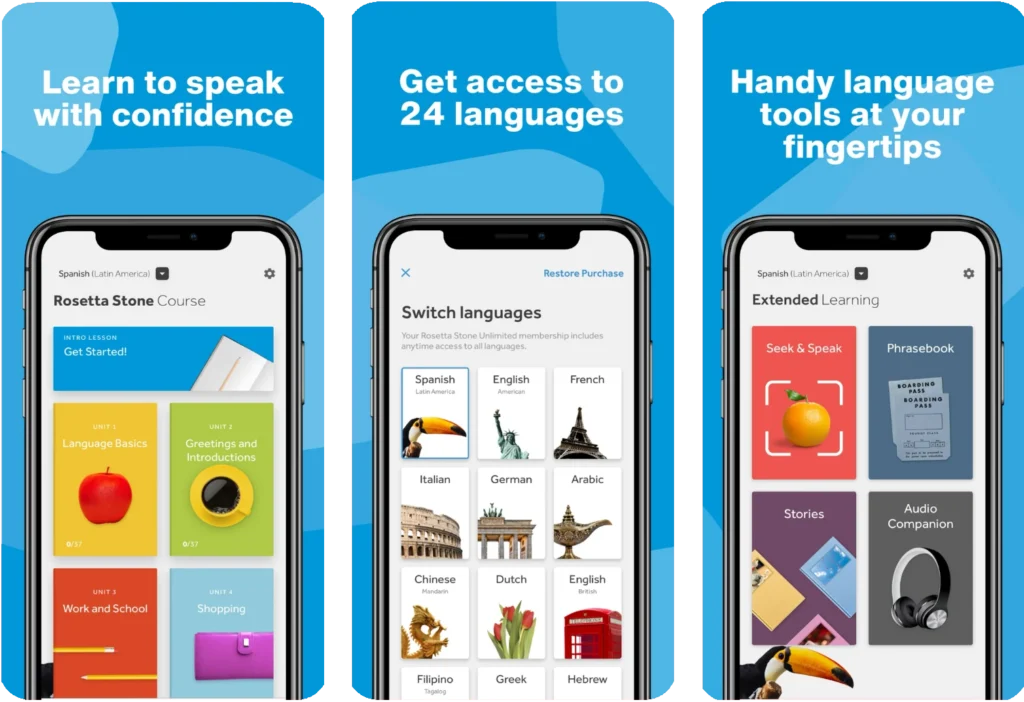
Key Features
- Immersive Approach: Rosetta Stone uses a unique method that emphasizes learning through context and visual associations without relying heavily on translations.
- Dynamic Immersion: The app features interactive activities, stories, and games that help you learn vocabulary and grammar in a natural way.
- Speech Recognition Technology: Rosetta Stone’s TruAccent technology provides real-time feedback on your pronunciation, helping you develop a more authentic accent.
- Focus on all Skills: The app covers reading, writing, listening, and speaking, ensuring you develop well-rounded language abilities.
- Offline Access: You can download lessons for offline use, making it convenient for travel or areas with limited internet connectivity.
Cons
- Price: Like Babbel, Rosetta Stone requires a subscription. While it can be pricey, they do offer discounts and trials.
- Steep Learning Curve: The immersive approach can be challenging for some beginners who prefer more explicit explanations and translations.
- Less Gamification: Rosetta Stone’s focus is on immersion rather than gamification, so it might not be as motivating for those who thrive on points and rewards.
If you want to fully immerse yourself in learning a new language and culture, Rosetta Stone could be a great fit for you. It uses pictures and real-world scenarios to help you understand the language naturally, the way you learned your first language. However, it’s worth noting that Rosetta Stone can be a bit pricey compared to other options, and some beginners might find it challenging.
Busuu: The Social Language Learning Network
If you’re the type who thrives in a supportive community and enjoys connecting with others, Busuu could be your perfect language learning companion. It combines structured lessons with social features, creating a platform where you can learn and interact with native speakers.
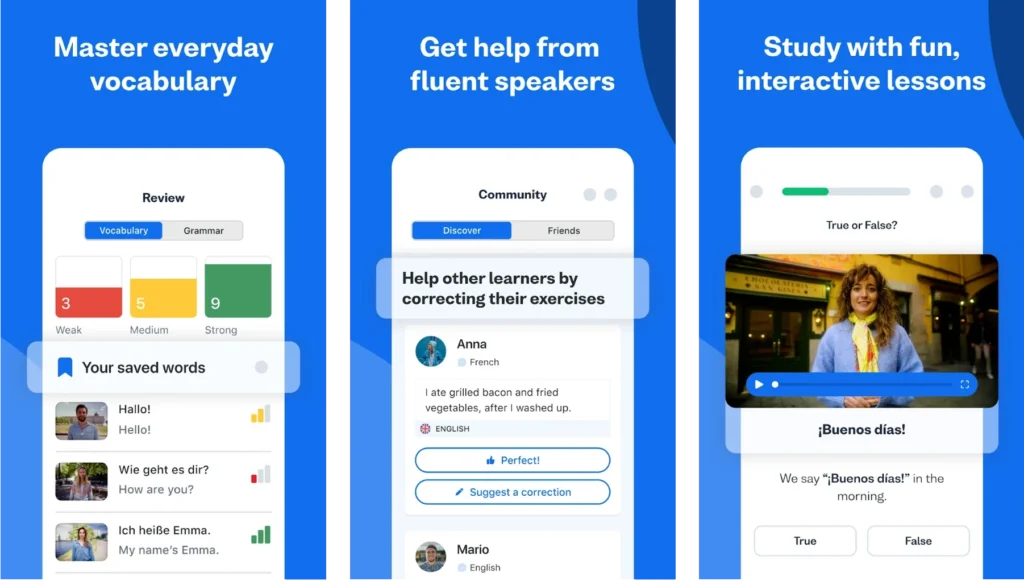
Key Features
- Comprehensive Courses: Busuu offers well-structured courses covering grammar, vocabulary, and conversation practice.
- Community Interaction: You can connect with native speakers who provide feedback on your exercises and help you practice your speaking and writing skills.
- Personalized Study Plans: The app helps you create a personalized study plan based on your goals and schedule, keeping you on track.
- Offline Mode: Like Rosetta Stone, Busuu lets you download lessons for offline access, so you can learn anytime, anywhere.
- AI-Powered Grammar Review: Busuu uses AI to analyze your mistakes and provide personalized grammar review exercises to help you improve.
Cons
- Limited Free Version: The free version offers limited access to features. You’ll need a premium subscription to unlock the full course content and community interaction.
- Heavy Reliance on Community: While the community aspect is a major strength, it also means that the quality of feedback and interaction can vary depending on the availability and willingness of native speakers.
- Fewer Language Options: Compared to Duolingo, Busuu offers a smaller selection of languages, but they focus on providing in-depth courses for those languages.
Busuu could be a great option if you enjoy connecting with others and getting feedback from native speakers while learning a new language. It offers structured lessons along with opportunities to interact with a community of learners. However, it’s important to consider the subscription cost and the fact that the app heavily relies on community interaction, which might not suit everyone’s learning style.
Pimsleur: The Audio-Focused Conversationalist
If you’re the kind of person who learns best by listening and repeating, Pimsleur might just be your language learning soulmate. This app ditches flashcards and gamification in favor of a purely audio-based approach that emphasizes practical conversation skills.
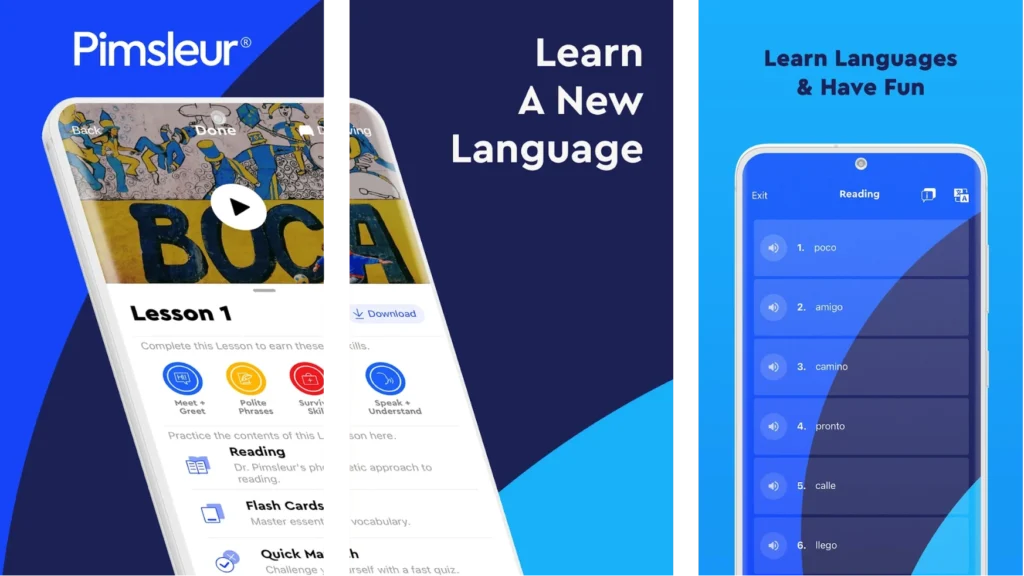
Key Features
- Audio-Based Lessons: Pimsleur’s core lessons consist of 30-minute audio tracks that guide you through conversations, vocabulary, and grammar points. You’ll listen, repeat, and respond, mimicking real-life interactions.
- Gradual Progression: The lessons build upon each other, gradually introducing new concepts and vocabulary in a manageable way.
- Focus on Core Vocabulary: Pimsleur prioritizes the most essential words and phrases you need for everyday communication, helping you achieve conversational fluency faster.
- Spaced Repetition: The app strategically reviews previously learned material to ensure long-term retention.
- Hands-Free Learning: The audio format makes it easy to learn on the go while driving, exercising, or doing chores.
Cons
- Subscription-Based: Pimsleur requires a paid subscription. However, they do offer free trials and occasional discounts.
- Limited Visuals: The lack of visual aids might not be ideal for visual learners who benefit from images and flashcards.
- Less Flexibility: The structured audio lessons might feel restrictive to some learners who prefer a more self-paced approach.
- Less Language Variety: Pimsleur offers a decent selection of languages, but it’s not as extensive as some other apps.
Pimsleur might be a good choice if you learn best by listening and want to focus on speaking and pronunciation. Its audio lessons and gradual pace can help build a strong foundation in your new language. However, if you prefer more visual learning or a flexible schedule, you might want to explore other options or use Pimsleur alongside another app.
HelloTalk: Your Global Language Exchange Hub
If you believe the best way to learn a language is by actually using it with real people, then HelloTalk might be your language learning paradise. This app isn’t about structured lessons or gamified quizzes; it’s about connecting you with native speakers around the globe for authentic language exchange and cultural immersion.
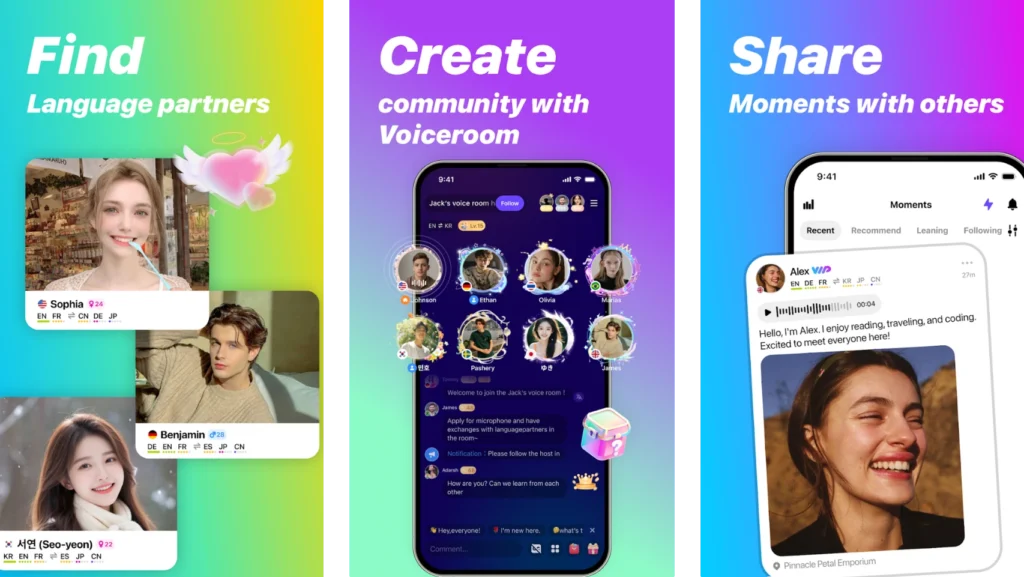
Key Features
- Language Exchange: Connect with native speakers who are also learning your language. You can practice together through text chats, voice calls, or video chats.
- Correction & Feedback: Get help from native speakers who can correct your mistakes and offer helpful feedback.
- Translation Tools: Use the built-in tools to translate words and phrases and check your pronunciation.
- Moments: Share written posts or updates in the language you’re learning and get feedback from other users to improve your skills.
- Search Filters: Find language partners based on things like location, age, interests, and how well they know the language.
Cons
- Less Structure: HelloTalk offers a very free-form learning environment. There are no set lessons or curriculum, so it’s up to you to create your own learning path.
- Finding the Right Partner: While there are many users, finding a compatible and reliable language partner can take time and effort.
- Potential for Distractions: The social nature of the app can lead to off-topic conversations or other distractions from language learning.
- Safety Considerations: As with any online platform, it’s important to be cautious and use good judgment when interacting with others.
HelloTalk is a great resource for practicing language skills in a real-world setting. It offers a unique opportunity to connect with native speakers, share cultural insights, and develop authentic communication skills. However, it’s important to be proactive, set clear learning goals, and find compatible language partners to maximize the experience.
Drops: Vocabulary Drills, Visually Reimagined
Drops could be a great fit if you’re a visual learner who enjoys a gamified experience. With its visually appealing design and quick exercises, Drops makes learning vocabulary fun and engaging. However, the app’s focus is primarily on expanding your vocabulary, so if you’re looking for in-depth grammar explanations or conversational practice, you might want to consider supplementing it with other resources. Also, while Drops offers a free version with limited daily usage, you’ll need a subscription to unlock unlimited access.
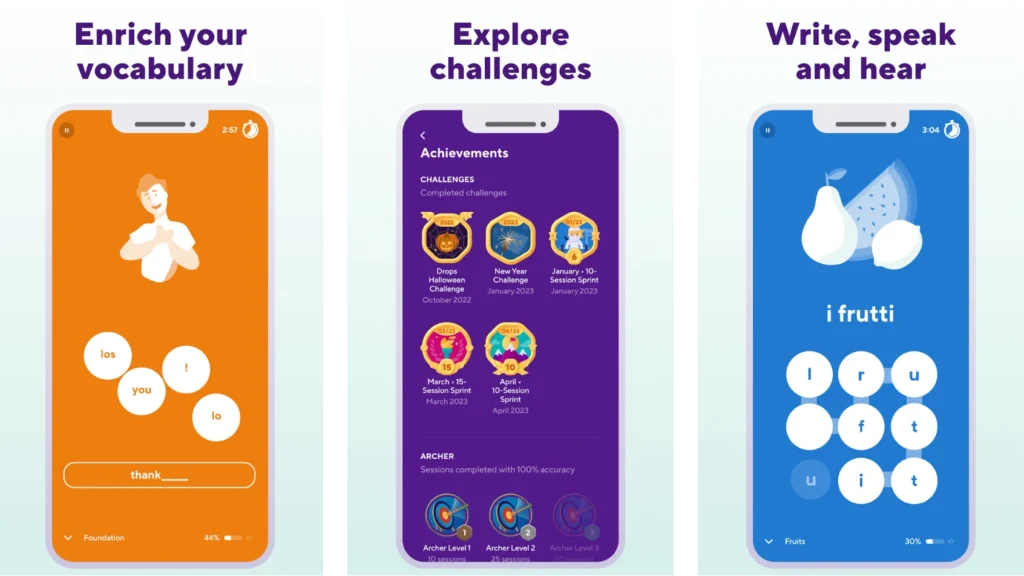
Key Features
- Visually Engaging: Drops ditches traditional flashcards for vibrant illustrations and animations that help you associate words with images, making them stick in your memory.
- Vocabulary Focus: The app prioritizes vocabulary, offering themed lessons and quick quizzes to help you build your word bank rapidly.
- Short, Intense Sessions: Lessons are limited to five minutes, encouraging consistent practice and preventing overwhelm.
- Wide Language Selection: Drops boasts an impressive collection of languages, including less commonly taught options.
- Offline Mode: You can download lessons for offline use, making it a handy companion for travel or times without an internet connection.
Cons
- Limited Free Version: The free version limits you to five-minute sessions per day. To unlock unlimited learning time and additional features, you’ll need a subscription.
- Narrow Focus: Drops is great for quickly picking up new vocabulary, but it doesn’t cover grammar or conversation practice in much detail.
- Gamification Can Be Distracting: While the gamified approach is fun for some, it might not be the best fit for learners who prefer a more traditional, structured approach.
Drops is a great way to expand your vocabulary in a new language. It’s visually engaging, and the short sessions make it easy to fit language learning into your schedule. However, it’s important to keep in mind that learning a language involves more than just vocabulary. You might want to use Drops together with other resources to develop grammar and conversation skills.
Mondly: Where Language Learning Meets Virtual Reality
If you’re the type of learner who likes immersive experiences and cutting-edge technology, Mondly might just transport you to a whole new world of language learning. This app blends traditional lessons with virtual reality (VR) and augmented reality (AR) features, creating a multi-sensory adventure that can make language learning feel like a thrilling game.
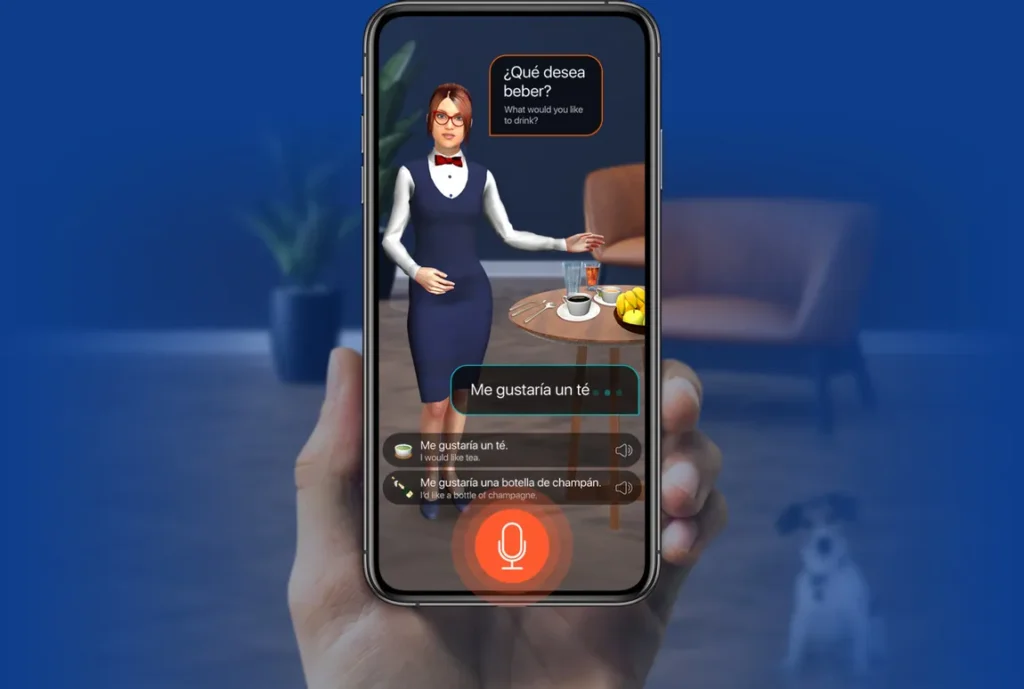
Key Features
- VR and AR Experiences: Mondly incorporates VR and AR technology into select lessons, so you can practice conversations and vocabulary in simulated real-life scenarios. Imagine ordering coffee in a virtual Parisian cafe or practicing directions with an AR guide in Rome.
- Chatbot Conversations: With Mondly’s chatbot, you can practice having conversations in your new language. It uses natural language processing to understand and respond to you, making it feel like you’re talking to a real person.
- Variety of Lesson Formats: Beyond VR and AR, Mondly offers a mix of lessons, including vocabulary drills, grammar exercises, and listening comprehension activities.
- Weekly Quizzes: Test your knowledge and track your progress with weekly quizzes that cover a range of language skills.
- Hands-Free Learning: The app supports voice commands, letting you practice your pronunciation and navigate lessons without touching your screen.
Cons
- VR/AR Limitations: While the VR and AR features are innovative and engaging, they might not be available for all lessons or languages.
- Subscription Model: Mondly operates on a subscription basis, so it’s not free. However, they offer discounts and trials, so be sure to check those out.
- Can Be Overwhelming: The sheer variety of lesson formats and features can be a bit overwhelming, especially for beginners.
- Limited Community Interaction: Unlike HelloTalk or Busuu, Mondly doesn’t have a built-in language exchange community.
Mondly offers virtual reality (VR) and augmented reality (AR) features, along with a variety of lesson formats to keep things interesting. However, it’s worth considering that Mondly requires a subscription, and the immersive features might feel overwhelming.
If you want to explore more about the exciting world of Augmented Reality, check out our article on mind-blowing AR apps that are changing the way we interact with the world.
italki: Your Personalized Language Learning Platform
If you’re looking for a more tailored and interactive language learning experience, italki might be the answer. Unlike traditional apps with pre-set lessons, italki is a platform that connects you with real, live language teachers and tutors from around the world.
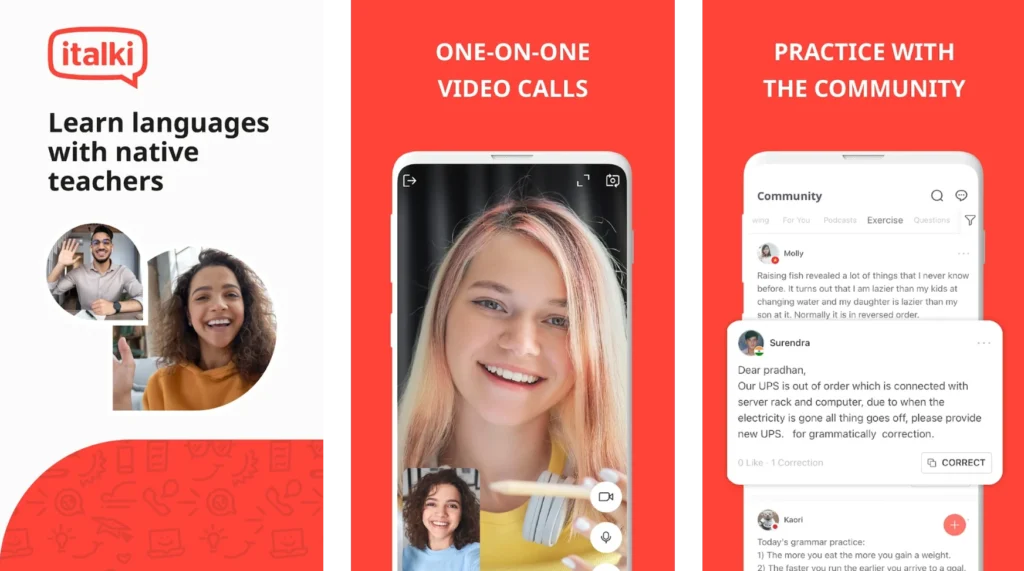
Key Features
- Personalized Lessons: You can choose from many qualified teachers and tutors based on language, price, availability, and teaching style to find the perfect fit for you.
- Flexible Scheduling: You can book lessons whenever it’s convenient for you, making it easier to fit language learning into your life.
- Variety of Lesson Formats: You can take one-on-one lessons, join group classes, or practice with other learners.
- Affordable Options: italki offers a range of pricing options, making personalized language instruction accessible to various budgets.
- Community Resources: You can get free language learning resources, articles, and forums to connect with other learners and get support.
Cons
- Requires Self-Motivation: With italki, you’re in charge of your own learning journey. You’ll need to be proactive about scheduling lessons, setting goals, and staying motivated.
- Teacher Quality Can Vary: While italki vets its teachers, teaching styles and effectiveness can differ. It’s important to read reviews, try out a few teachers, and find the best fit for you.
- Less Structured Curriculum: Unlike traditional apps, italki doesn’t provide a set curriculum. You and your teacher will work together to create a personalized learning plan.
- Technical Requirements: For video lessons, you’ll need a reliable internet connection, a camera, and a microphone.
italki could be a great fit if you want a more personalized and interactive language learning experience. The ability to connect with real teachers and tailor lessons to your specific needs can be incredibly valuable. However, it’s important to be proactive and self-motivated. You’ll also want to carefully research teachers to find the best fit and be comfortable with a less structured learning environment.
Your Guide to the Best Language Learning Apps
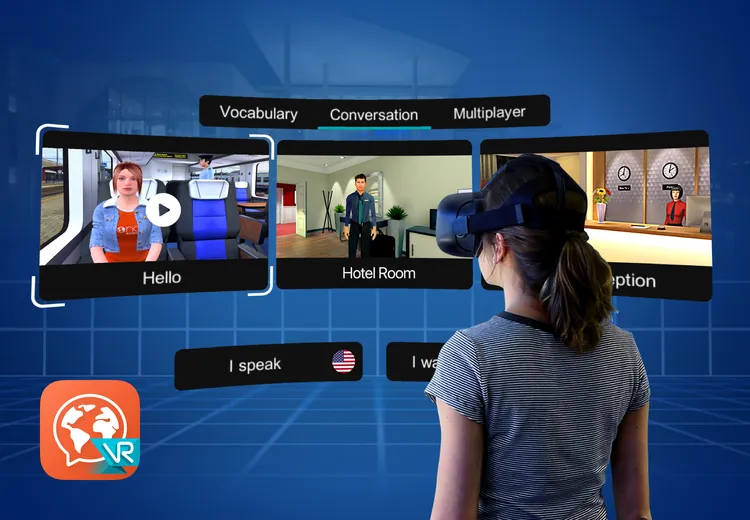
Photo credit: Mondly
Choosing the best language learning app is a personal journey, much like language learning itself. It’s about finding the app that aligns with your goals, learning style, and preferences. Consider factors like cost, features, language selection, and user experience. Don’t be afraid to try out different apps and see which one sparks your interest and keeps you motivated.
Remember, language learning is a marathon, not a sprint. Consistency, practice, and a positive attitude are key. Supplement your chosen app with other resources like books, podcasts, or conversations with native speakers to create a well-rounded learning experience.
If you looking for more structured learning or additional support, explore our guide to the best online learning platforms in 2024 to find courses, tutors, and communities to enhance your learning journey.
With the right app and a dash of dedication, you’ll be well on your way to unlocking new worlds and expanding your horizons. Happy learning!
FAQs
Which is the best language learning app?
The “best” app depends on your individual learning style, goals, and preferences. Some apps excel at gamification (Duolingo), while others focus on immersive experiences (Rosetta Stone) or conversational skills (Babbel). It’s often helpful to try a few different apps to see which one resonates best with you.
Are language learning apps effective?
Language learning apps can definitely be helpful, especially if you use them regularly and combine them with other resources like books, podcasts, or conversations with native speakers. They’re a convenient way to work on your vocabulary, grammar, and basic conversation skills. But remember, apps alone might not get you all the way to fluency.
Can I become fluent using only a language learning app?
While language learning apps can provide a solid foundation, becoming fluent usually requires a well-rounded approach. It’s important to interact with native speakers, immerse yourself in the language through real-world experiences, and actively practice in everyday conversations. Apps are a helpful tool, but they work best when combined with other learning methods.
How much time should I dedicate to language learning apps?
Consistency is key! Try to practice for at least 15-30 minutes every day. Even a quick lesson during your commute or coffee break can make a difference. It’s often more effective to practice regularly for short periods than to cram in longer sessions once in a while.
Is Babbel a free language learning app?
No, Babbel is not a free language-learning app. While it does offer a free trial or the first lesson in each course for free, accessing the full range of courses and features requires a paid subscription.
What is better, Babbel or Rosetta Stone?
Babbel and Rosetta Stone are both great for language learning, but they have different strengths. Babbel focuses on practical conversations, while Rosetta Stone emphasizes learning through immersion. The best app for you depends on your individual preferences and how you learn best.


